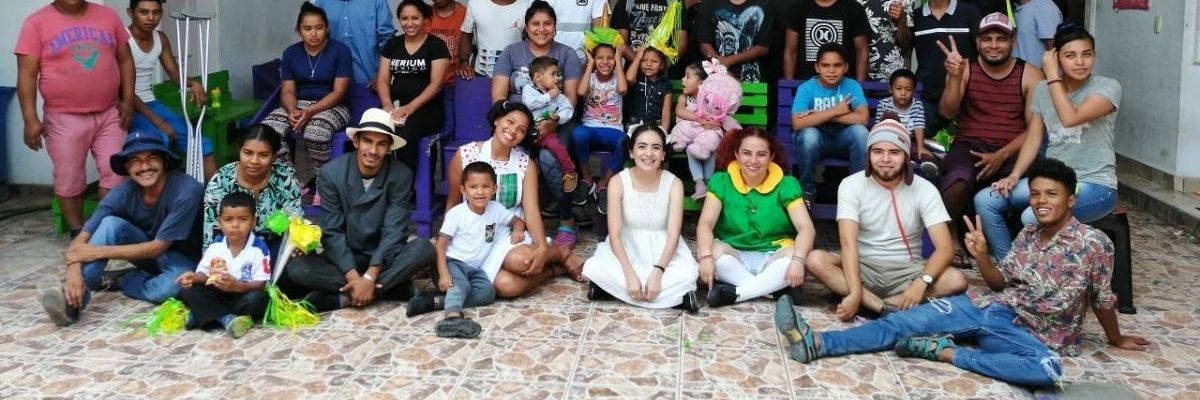Last night I heard a presentation by Abba House in San Miguel de Allende, Mexico, the town where I currently live. Abba House is a safe house based in neighboring Celaya that helps meet the needs of migrants for food, rest, and medical care. As I listened, I was reminded yet again of the harsh reality migrants face as they escape gut wrenching conditions in their own countries, risk abduction and injury as they travel through Mexico, and face an impenetrable wall of hostility when they reach the border with the United States. The migrant caravans, so prevalent last year, have dwindled to much smaller groups. The inhospitable living conditions in their countries of origin remain the same, but the border between Guatemala and Mexico is now heavily militarized. And seeking asylum in the U.S. is all but impossible. The director of Abba House, Ignacio Ramirez, stated succinctly that there is no place for the poor in this world.
Living in close proximity to people who are heading north to seek a safer life sheds new light on the desperation that so many people groups around the world experience daily. As Trump continues to use the desperate plight of the migrants to stir up his base regarding illegal immigration, I routinely hear this complaint from fellow Americans: "Why can't people do things in an orderly and legal way? There are procedures in place. This blunt disregard of the system is wrong." This indignation leads to cries for deportation and "fairness."
When your life is safe, secure, and without threat, you automatically assume that if others played by the rules like you have, this chaos would be solved.
However, this critique can only be spoken from a moral high ground granted exclusively to those who already possess great privilege. When your life is safe, secure, and without threat, you automatically assume that if others played by the rules like you have, this chaos would be solved. However, this entitled, and might I add simple viewpoint fails to understand the dynamic faced by people truly in crisis. When your life is threatened, or you face poverty or violence so extreme that walking thousands of miles is actually an attractive option, you are thinking on an entirely different plane. Your sole focus is survival, with a glimmer of hope that surely there is a life somewhere where you will not be living in fear, danger, poverty, or hunger. When you are fleeing for your life, the "rules" of the system you are heading towards are not guiding your behavior. Desperation is, coupled with a longing to live.
Just as the migrants hoping to gain asylum in the United States have a felt need for shelter, food, and jobs, we have an equal need to have our American and privileged world views transformed. The danger of privilege is that it colors our interpretation of "right and wrong," and at the same time distorts our view of justice. This is especially troublesome, given that those with privilege both create the rules and also possess the most resources to balance the gross inequality in the world.
If nothing else, Americans should be able to understand a people group driven by a core belief that things can be better. Immigration to this country has been driven by the dream of a better life for its entire history. Surely the migrants' pursuit of this same dream is something that can garner a show of compassion, not the flaming of racial hatred, understanding instead of condemnation, and a renewed effort to solve the complexities inherent in the immigration system. For we must remember that it is not "us and them." We are fellow citizens on this planet who are inextricably tied together in our common humanity. We must learn to forge a future together that includes a vision for all of us.

